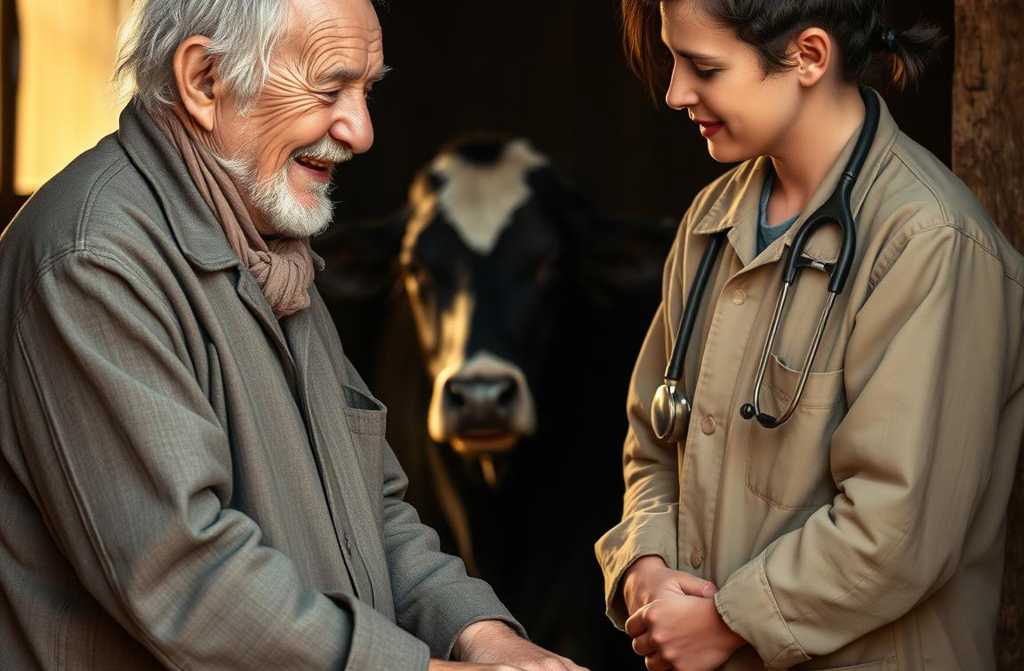By the age of sixty, Clive found himself haunted by regret over the mistakes of his youth. Lately, memories of past wrongs kept resurfacingperhaps a side effect of growing older. No matter how hard he tried to push them away, they lingered in his mind.
From childhood, Clive had a fiery temper. His sense of justice ran deep, and he couldnt stand unfairness. If he saw injustice, hed leap into a fight without hesitation.
As he grew older, he became the unofficial arbiter of disputes among the lads in his village. Boys would come to him when they couldnt settle their quarrels.
“Clive, settle this for us,” one would say. “If Tommy and Ben sneaked into old Mr. Wilsons orchard to nick apples, and Mr. Wilson only caught Benwho then snitched on Tommythen Tommy walloped Ben for betraying him. And then Bens dad got involved, so Tommy got a hiding too. Whos in the wrong?”
Clive would weigh in, and the boys respected his judgment.
Time passed. When he was in Year 9, another injustice unfolded. Clive was a sporty ladgood at football, brilliant in volleyball, and the best cross-country skier in school.
One winter, the district skiing championships came around. The school held trials, and Clive finished first by a mile.
“No surprise there,” his mate Tommy said. “Youll be the one going to the championships, no question.”
But the PE teacher had other plans. He awarded the top spot to Edward, the son of a friend, and announced,
“Edward will represent the school at the district finals.” Edward smirked at Clive.
The students murmured in protest, but the teacher shut them down. Clive, fists clenched, confronted him.
“Why is this fair?”
“Because Edwards leaving school this year. Youll go next time. Thats final.” He gave Clive a dismissive shove.
On the way home, Clive cornered Edward. He didnt think hed hit him that hardbut Edward ended up too bruised to compete. Naturally, Clive was barred too, and the incident sparked trouble at school. Worse, Edwards mother taught history there.
After that, both the PE teacher and the history teacher made Clives life miserable. When he finished Year 9, he dropped out. His parents argued, but Clive refused to go back.
“Mum, stop nagging,” he said. “If I stay, Ill snap. I cant take it.” She knew his temper and let it go.
In a village like theirs, work was scarce. Clive ended up at the local farm, shadowing Michael, the vet. He loved helping with the animals and picked up the trade quickly. Michael saw his talent and mentored him.
“Shame you didnt stay in school, Clive,” Michael often said. “You couldve taken my place one day.”
“I like this work,” Clive admitted.
But fate had a cruel twist. Edward, of all people, trained as a vet and returned to replace Michael when he retired. Clive watched from afar, noticing Edwards lack of experience. Book learning was one thingpractice was another, and Clive had that in spades.
Still, he kept his distance.
“Hes qualified. He must know what hes doing,” Clive reasoned.
Then the farm manager ordered Edward to vaccinate all the livestock. Clive couldve done it blindfoldedhed learned from Michael.
Edward, knowing he was out of his depth, went to the old vet for help. But Michael had broken his leg and was stuck at home in a cast.
“Ask Clive,” Michael said. “He knows the work inside out.”
Reluctantly, Edward approached him.
“Help me with the vaccinations. I cant do it alone.”
But Clive still remembered the schoolyard injustice.
“Youre the expert,” he said coldly. “Youll get paid for it. Keep the money.” He walked away.
The next day, the farm manager tore into Edward in front of everyone for failing the task. Humiliated, Edward came back to Clivethis time with an apology.
“Clive, Im sorry about what happened at school. I remember it too.” Hed had a drink for courage and was near tears. “Please help.”
Clive softened. He thought, *Holding a grudge this long is pointless. Hes apologised.*
He helped Edward, and they finished the job quicklyearning praise from the manager. Edward thanked him with a bottle of whiskey. Clive took it, gave him a long look, then smashed it against a rock. He didnt drink.
“A simple ‘thank you’ wouldve been enough,” he muttered, walking away.
Time passed. Another incident tested Clives temper. When wages stopped coming on time, everyone struggled. Clive started raising calves to sell for meata steady income.
One day, elderly neighbour Mrs. Clarke asked him for a lift to town.
“The bus is too much for me, and then theres the walk to the hospital.”
He drove her, refusing payment, but she left cash on the seat anyway.
“Take it for petrol, Clive. I might need your help again.”
Word spread, and soon others asked for rides. Clive never turned anyone downsome paid what they could; others, nothing at all.
For six months, he was the villages unofficial taxi. Until Nigel, a local man, grew jealous and started offering the same serviceat a fixed, steep price. Villagers complained to Clive.
“Why are you fleecing them?” Clive confronted Nigel. “And spreading lies about me?”
“Its none of your business what I charge. Jealous Im stealing your customers? Theyll pay if theyre desperate,” Nigel sneered.
Clives fist flew. Nigel tried to make a scene, but no one backed him. Clive kept his passengers.
Over the years, Clive fought for fairness often. Once, he and a villager named Sid dug septic tanks for extra cash. Business boomed, so they hired two helpers.
When Clive fell ill one day, the men finished a job without him. Sid pocketed the money.
“Must be Archie didnt pay you,” Clive thought and went to collect his share.
“Clive, I paid Sid in full! He swore hed give you your cut. Did he keep it?”
Clive confronted Sid, who squirmed.
“Archie barely paid us! I gave the lads a bit, kept some and you were sick, so”
Clive saw red.
“You think thats fair?”
Sid shuffled. “We spent it all in town. Ive got nothing left.”
Clive swung. After that, they never worked together again.
But as he aged, guilt gnawed at him. He even went to church, where the vicar spoke of sinsand Clive wondered.
“Maybe I made too many mistakes fighting for what I thought was right. Hitting people wasnt the answer. And Sids dead nownot because of me, but still I was wrong.”
These thoughts kept him awake at night. In six months, hed turn sixty, and the weight of his regrets grew heavier.
“If someone hit my sons, Id be furious. I wasnt right to do it to others. I wish I could fix itbut its too late.”







